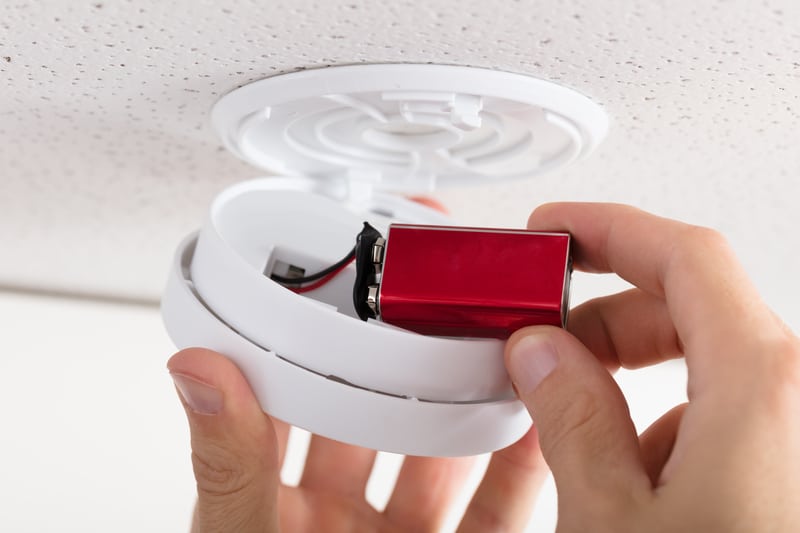There are a number of health and safety risks that can occur in the average home. Fire is perhaps the most common, but carbon monoxide poisoning could be more common than you think.

To meet code and safety measures, smoke alarms should be installed in every bedroom or area where people sleep. And at least one smoke alarm should be located on each level of the home, including the basement. Carbon Monoxide detectors need to be within 15 feet of any bedroom door, including each level of the home.
Continue reading to learn more about smoke and CO detectors or simply reach out to the expert Denver electricians at Bell Plumbing, Heating, Cooling & Electrical today!
You should test your smoke detectors and CO detectors every month using the test button to ensure they have a reliable power source. It’s best to wear ear protection and move pets to another area before testing.
Never test a detector with real smoke, flames, or exhaust.
If your detectors are not hard-wired, we recommend replacing them with hard-wired, battery backup devices.
Replace the backup battery at least once a year. Fall is a great time to do this. Replace the full devices every seven to 10 years to ensure the safety of your family and your home.
Carbon monoxide is an invisible, odorless gas that is commonly produced as a byproduct of natural gas combustion. If you use a gas furnace, stove, or any other appliance, at least a small amount of this gas is produced every time it’s operating. Normally, these systems either don’t produce enough of the gas to be harmful, or they have measures in place to safely dispose of it once it’s been created. The problem occurs when these safety measures malfunction, which happens often enough that you should have some backup measures in place.
Carbon monoxide exposure is toxic because it binds to the oxygen receptors in the blood, preventing the body from receiving enough oxygen to function properly. This can cause migraines, dizziness, nausea, hallucinations, and blackouts, among other things. In very high doses, carbon monoxide poisoning can even be fatal. Because there’s no way for a person to really detect carbon monoxide without special equipment, the first warning signs for someone without a detector would likely be to experience the symptoms described.
A carbon monoxide detector monitors the air in the home for trace amounts of carbon monoxide. When the concentrations of the gas reach a dangerous level, the alarm activates to warn the occupants. If you don’t already have carbon monoxide detectors installed in your home, you should have them installed as soon as possible. Colorado law requires them!
If you need assistance installing new smoke or CO detectors in Denver or the surrounding area, contact the experts at Bell Plumbing, Heating, Cooling & Electrical.
We’re ready to answer your questions or schedule your appointment, call now or book online!
